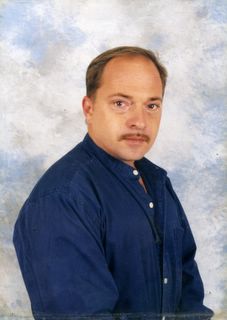Since my links (in an earlier post) to HR81 are not working, I decided to post the entire bill here for you to read.
I suggested to a fellow ham in my area to print out a copy of this bill to read at his inquisition to be held at his city courthouse. Apparently, one of his antennas was 4 feet too high! He cut 4 feet from it, and the city still wants him to testify as to the purpose, need and possible occasions in which Amateur Radio is useful.
Here's the bill:
H.R.81 -- Amateur Radio Emergency Communications Enhancement Act of 2011 (Introduced in House - IH)
HR 81 IH
112th CONGRESS
1st Session
H. R. 81
To promote and encourage the valuable public service, disaster relief, and emergency communications provided on a volunteer basis by licensees of the Federal Communications Commission in the Amateur Radio Service, by undertaking a study of the uses of amateur radio for emergency and disaster relief communications, by identifying unnecessary or unreasonable impediments to the deployment of Amateur Radio emergency and disaster relief communications, and by making recommendations for relief of such unreasonable restrictions so as to expand the uses of amateur radio communications in Homeland Security planning and response.
IN THE HOUSE OF REPRESENTATIVES
January 5, 2011
Ms. JACKSON LEE of Texas introduced the following bill; which was referred to the Committee on Energy and Commerce
A BILL
To promote and encourage the valuable public service, disaster relief, and emergency communications provided on a volunteer basis by licensees of the Federal Communications Commission in the Amateur Radio Service, by undertaking a study of the uses of amateur radio for emergency and disaster relief communications, by identifying unnecessary or unreasonable impediments to the deployment of Amateur Radio emergency and disaster relief communications, and by making recommendations for relief of such unreasonable restrictions so as to expand the uses of amateur radio communications in Homeland Security planning and response.
Be it enacted by the Senate and House of Representatives of the United States of America in Congress assembled,
SECTION 1. SHORT TITLE.
This Act may be cited as the `Amateur Radio Emergency Communications Enhancement Act of 2011'.
SEC. 2. FINDINGS.
The Congress finds the following:
(1) Nearly 700,000 amateur radio operators in the United States are licensed by the Federal Communications Commission in the Amateur Radio Service.
(2) Amateur Radio operators provide, on a volunteer basis, a valuable public service to their communities, their States, and to the Nation, especially in the area of national and international disaster communications.
(3) Emergency and disaster relief communications services by volunteer Amateur Radio operators have consistently and reliably been provided before, during, and after floods, hurricanes, tornadoes, forest fires, earthquakes, blizzards, train accidents, chemical spills, and other disasters. These communications services include services in connection with significant examples, such as hurricanes Katrina, Rita, Hugo, and Andrew; the relief effort at the World Trade Center and the Pentagon following the 2001 terrorist attacks; and the Oklahoma City bombing in April 1995.
(4) Amateur Radio has formal agreements for the provision of volunteer emergency communications activities with the Department of Homeland Security, the Federal Emergency Management Agency, the National Weather Service, the National Communications System, and the Association of Public Safety Communications Officials, as well as with disaster relief agencies, including the American National Red Cross and the Salvation Army.
(5) The Congress passed Public Law 103-408 which was signed by the President on October 22, 1994. This included in section 1 the following finding of Congress: `Reasonable accommodation should be made for the effective operation of amateur radio from residences, private vehicles and public areas, and the regulation at all levels of government should facilitate and encourage amateur radio operation as a public benefit.'
(6) The Congress passed Public Law 109-295 which was signed by the President on October 4, 2006. This included a provision in the Department of Homeland Security Appropriations legislation for fiscal year 2007 that directed the Department's Regional Emergency Communications Coordinating Working Group to coordinate their activities with `ham and amateur radio operators' among the eleven other emergency organizations such as ambulance services, law enforcement, and others.
(7) Amateur Radio, at no cost to taxpayers, provides a fertile ground for technical self-training in modern telecommunications, electronic technology, and emergency communications techniques and protocols.
(8) There is a strong Federal interest in the effective performance of Amateur Radio stations, and that performance must be given support at all levels of government and given protection against unreasonable regulation and impediments to the provision of these valuable communications.
SEC. 3. STUDY OF ENHANCED USES OF AMATEUR RADIO IN EMERGENCY AND DISASTER RELIEF COMMUNICATION, AND FOR RELIEF OF RESTRICTIONS.
(a) Authority- The Secretary of Homeland Security--
(1) shall undertake a study on the uses and capabilities of Amateur Radio communications in emergencies and disaster relief; and
(2) shall report its findings to Congress not later than 180 days after the date of enactment of this Act.
(b) Scope of the Study- The study required by this section shall--
(1) include recommendations--
(A) for enhancements in the voluntary deployment of Amateur Radio licensees in disaster and emergency communications and disaster relief efforts; and
(B) for improved integration of Amateur Radio operators in planning and in furtherance of the Department of Homeland Security initiatives;
2)(A) identify unreasonable or unnecessary impediments to enhanced Amateur Radio communications, such as the effects of private land use regulations on residential antenna installations; and
(B) make recommendations regarding such impediments; and
(3)(A) include an evaluation of section 207 of the Telecommunications Act of 1996 (Public Law 104-104, 110 Stat. 56 (1996)); and
(B) make a recommendation whether that section should be modified to prevent unreasonable private land use restrictions that impair the ability of an amateur radio operator licensed by the Federal Communications Commission to conduct, or prepare to conduct, emergency communications by means of effective outdoor antennas and support structures at reasonable heights and dimensions for the purpose, in residential areas.
(c) Use of Expertise and Information- In conducting the study required by this section, the Secretary of Homeland Security shall--
(1) utilize the expertise of the American Radio Relay League, representing the National Amateur Radio community; and
(2) seek information from private and public sectors for the study.
12/17/16 Wood Cutting, Devil Worship interruption, Deal not Honored
-
Interesting dream about a kid with long reddish-brown hair.
He looked like he was around 16 years old. Strange thing about this kid
is that at times in ...
9 years ago














No comments:
Post a Comment